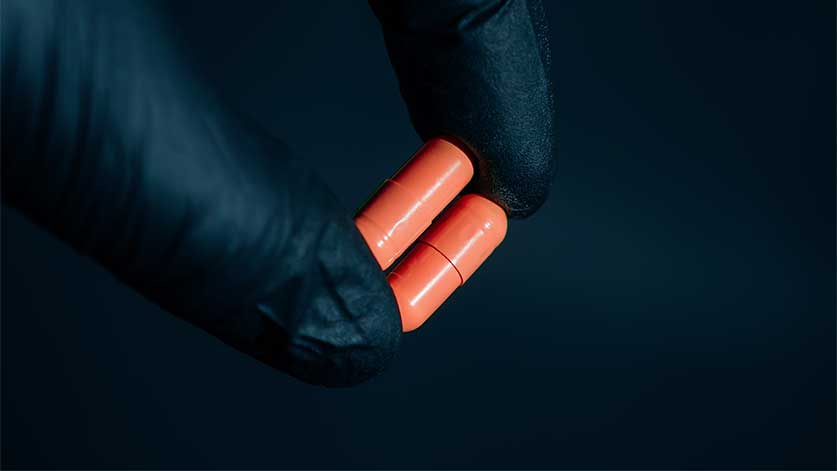Vyvanse (Lisdexamfetamine Dimesylate) Side Effects & Warnings
Vyvanse is a prescription drug used to treat symptoms of attention deficit hyperactivity disorder (ADHD) and binge eating disorder. However, this drug comes with warnings and may cause a variety of side effects.

Lisdexamfetamine dimesylate (brand name Vyvanse) is a prescription drug used to help treat symptoms of attention deficit hyperactivity disorder (ADHD). In addition, the ADHD medication can also be used to treat moderate to severe binge eating disorder.
Vyvanse is a Schedule II controlled substance according to the United States Drug Enforcement Administration (DEA). This means Vyvanse has a high potential for abuse and can lead to serious psychological or physical dependence.
Available as a capsule or chewable tablet, Vyvanse is a central nervous system stimulant (CNS) drug which can create various side effects that range in severity.
Side Effects Of Vyvanse
Common side effects of Vyvanse can become more pronounced if drug abuse has taken place.
Common Side Effects
As stated by the United States Food and Drug Administration (FDA), common side effects of Vyvanse consist of:
- anxiety
- constipation
- weight loss
- diarrhea
- dizziness
- dry mouth
- loss of appetite
- stomach pain
- increased heart rate
- sleeping problems such as insomnia
- high blood pressure
Serious Side Effects
Those who abuse Vyvanse may experience more serious side effects that include:
- cardiovascular or circulation problems
- serotonin syndrome
- Vyvanse overdose
- mental health problems
- withdrawal symptoms
Withdrawal Symptoms
Those who abruptly stop their medication “cold turkey” may experience certain withdrawal symptoms. Some of the withdrawal symptoms associated with Vyvanse may include:
- intense cravings for the drug
- mood swings
- inability to focus or concentrate
- increase in appetite
- difficulty feeling pleasure
- increase in sleep
Vyvanse Warnings
Those taking Vyvanse should know the warnings associated with this stimulant medication. For instance, women who are pregnant or breastfeeding should avoid Vyvanse as the drug may pass from mother to child via breast milk.
Additionally, those with Raynaud’s Phenomenon, tics such as Tourette’s syndrome, or a history of heart problems should avoid Vyvanse.
Drug Interactions
Allergic reactions and adverse effects can take place when a person combines Vyvanse with other legal or illicit drugs. Some of the substances to avoid while taking Vyvanse consist of:
- over-the-counter pain medications
- supplements or vitamins
- other ADHD medications such as Adderall (dextroamphetamine and amphetamine) and Ritalin (methylphenidate)
- alcohol
- benzodiazepines
- legal or illicit opioids
- certain antidepressants
Serotonin Syndrome
Those suffering from mental health issues such as bipolar disorder should speak with their healthcare provider before taking Vyvanse. Mental health problems in combination with Vyvanse can result in anxiety, depression, or psychosis depending on the severity of drug use.
Certain antidepressants should also be avoided including monoamine oxidase inhibitors (MAOIs) such as methylene blue, linezolid, and phenelzine. A serious condition known as serotonin syndrome can occur, resulting in an increase of serotonin in the brain due to the combination of antidepressants.
In addition to MAOIs, antidepressants such as serotonin reuptake inhibitors (SSRIs) and serotonin and norepinephrine selective reuptake inhibitors (SNRIs) should not be combined with Vyvanse.
Cardiovascular Symptoms
If you have heart problems or a heart defect, Vyvanse should be avoided. Due to the circulatory problems which may occur when Vyvanse is used, severe chest pain may occur. A heart attack can take place, resulting in death or other life-threatening health issues.
Vyvanse Overdose
A Vyvanse overdose can take place when a person consumes a larger amount of the drug than prescribed or engages in other forms of Vyvanse abuse. Signs of a Vyvanse overdose can include:
- skin color changes
- seizures
- hallucinations
- trouble breathing such as respiratory depression
- aggressive behavior
- heart attack
- stroke
- coma
- sudden death
If an overdose is expected, contact 911 immediately and seek urgent medical attention.
If you or a loved one are struggling with drug use, consider finding treatment. At Ohio Recovery Center, our healthcare professionals can assist you with individualized treatment plans and evidence-based care. To learn more, please contact us today.
- Drug Enforcement Administration https://www.dea.gov/sites/default/files/2020-06/Stimulants-2020.pdf
- Food and Drug Administration https://www.accessdata.fda.gov/drugsatfda_docs/label/2015/021977s036s037lbledt.pdf
- National Institute on Drug Abuse https://nida.nih.gov/sites/default/files/drugfacts_stimulantadhd_1.pdf
- National Library of Medicine: MedlinePlus https://medlineplus.gov/druginfo/meds/a607047.html
- Pharmacy and Therapeutics https://www.ncbi.nlm.nih.gov/pmc/articles/PMC2873712/

